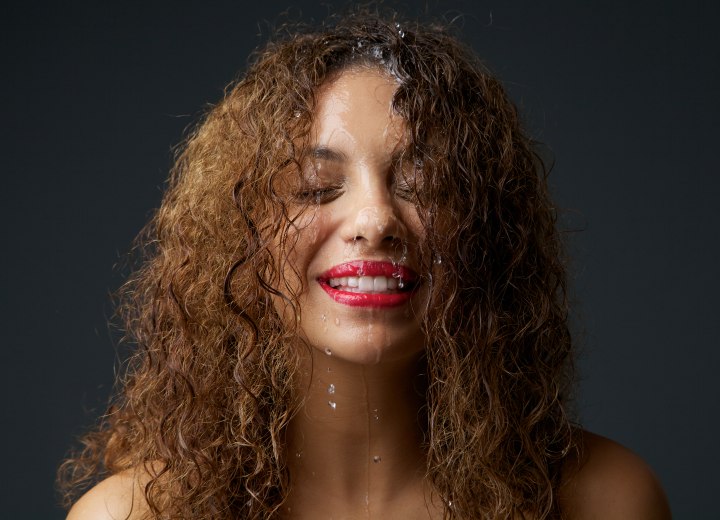Water and Hair Damage

A: The relationship between water and hair health is more nuanced than simply "good" or "bad". It largely depends on your hair's porosity, overall condition, and how you're exposing your hair to water.
When you have damaged or overly porous hair, spritzing it with water can initially make it look and feel better because the water gets absorbed quickly into the hair shaft, temporarily plumping it up and adding hydration. However, this improvement is short-lived. Just as quickly as the water enters the hair, it evaporates away, often leaving your hair feeling drier than before. This happens because porous hair has a compromised cuticle layer - the outermost protective layer of the hair shaft - that can't effectively seal in moisture.
For moisture to truly benefit your hair, the cuticle layer needs to be smooth and closed to lock in hydration. This is why many quality conditioners and hair treatments use slightly acidic formulations, typically with a pH between 4.5 and 5.5. These acidic products help flatten and close the cuticle scales, creating a smoother surface that better retains moisture and reflects light for added shine.
Water itself can become problematic when your hair is exposed to it for extended periods. Even pH-neutral water (with a pH of 7) is more alkaline than the natural pH of healthy hair and skin, which ranges from about 4.5 to 5.5. Most tap water is actually even more alkaline than neutral, often ranging from pH 7.5 to 8.5 or higher. This alkalinity causes the hair cuticles to swell and lift, making the hair more vulnerable to damage and moisture loss.
To understand what prolonged water exposure does to hair, think about what happens to your skin after a long bath or swim. It becomes swollen and wrinkled. Your hair undergoes a similar process, with the hair shaft swelling as it absorbs water, then contracting as it dries. This repeated swelling and shrinking can weaken the hair structure over time, leading to increased damage.
Swimming presents particular challenges because you're exposing your hair to water for extended periods, often in chlorinated pools or salt water, both of which can be especially harsh. Chlorine is highly alkaline and can strip natural oils from your hair, while salt water can be dehydrating. Frequent swimmers often notice their hair becoming dry, brittle, or discolored over time.
However, completely avoiding water contact with your hair isn't realistic or necessary. Most hair care products, including shampoos, conditioners, leave-in treatments, and styling products, contain significant amounts of water as their primary ingredient. Your hair is exposed to water far more frequently than you might realize through your regular hair care routine.
The key is being strategic about water exposure. Brief contact with water during normal washing and styling routines is perfectly fine and necessary for hair health. However, you can minimize potential damage by using products designed to protect your hair's pH balance, applying leave-in conditioners or oils before swimming, and avoiding excessive manipulation of wet hair, which is more fragile and prone to breakage.
©Hairfinder.com
See also:
Hard water hair
What is the best water temperature to wash your hair with?
Could you please let me know what the pH level of water in a salon should be?